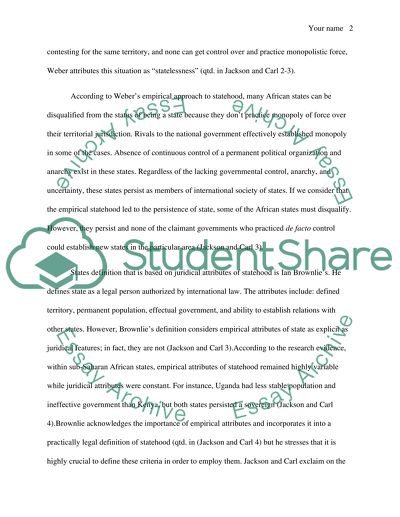Cite this document
(“A striking feature of weak states is that they face very few Essay”, n.d.)
A striking feature of weak states is that they face very few Essay. Retrieved from https://studentshare.org/history/1578176-a-striking-feature-of-weak-states-is-that-they-face-very-few-challenges-from-the-people-living-in-them-why-do-weak-states-persist
A striking feature of weak states is that they face very few Essay. Retrieved from https://studentshare.org/history/1578176-a-striking-feature-of-weak-states-is-that-they-face-very-few-challenges-from-the-people-living-in-them-why-do-weak-states-persist
(A Striking Feature of Weak States Is That They Face Very Few Essay)
A Striking Feature of Weak States Is That They Face Very Few Essay. https://studentshare.org/history/1578176-a-striking-feature-of-weak-states-is-that-they-face-very-few-challenges-from-the-people-living-in-them-why-do-weak-states-persist.
A Striking Feature of Weak States Is That They Face Very Few Essay. https://studentshare.org/history/1578176-a-striking-feature-of-weak-states-is-that-they-face-very-few-challenges-from-the-people-living-in-them-why-do-weak-states-persist.
“A Striking Feature of Weak States Is That They Face Very Few Essay”, n.d. https://studentshare.org/history/1578176-a-striking-feature-of-weak-states-is-that-they-face-very-few-challenges-from-the-people-living-in-them-why-do-weak-states-persist.


